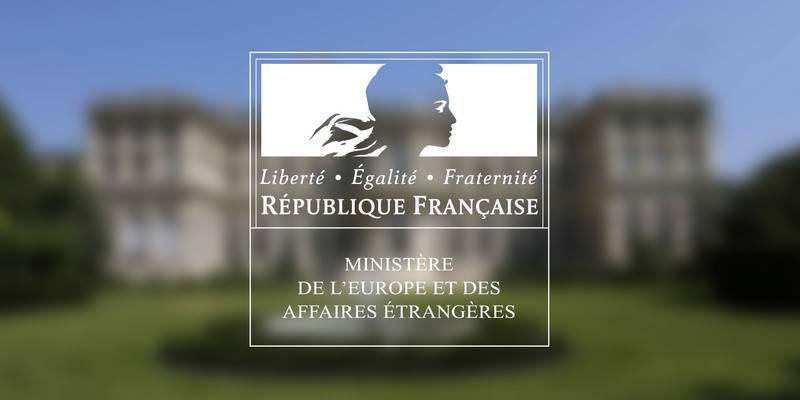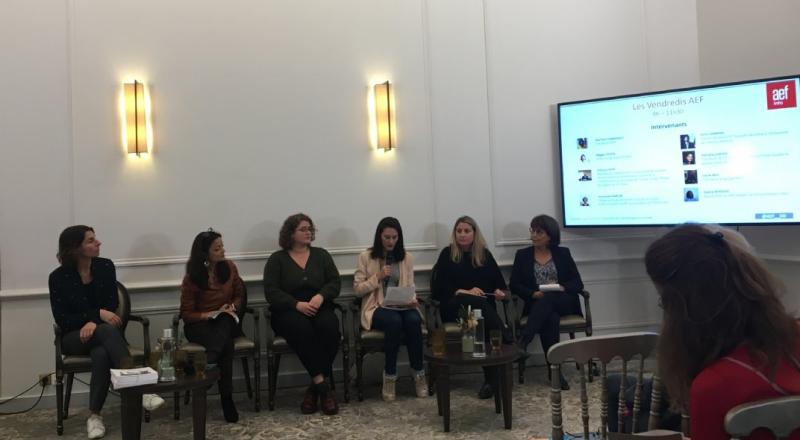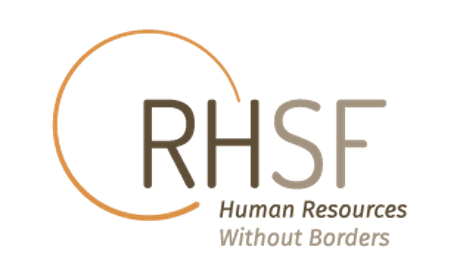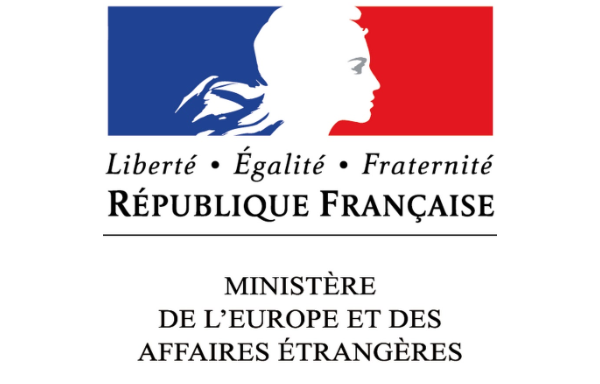RHSF – Ministry of Europe and Foreign Affairs: a constructive partnership
Published on Feb 06, 2023
By GUY CLAVEL
Field work, training of diplomatic representatives, introduction to key contacts in foreign countries, sharing of experience on child labour and forced labour in industry or agriculture around the world… A mutually rewarding partnership has been established for two years between the association Human Resources Without Borders (RHSF) and the French Ministry of Europe and Foreign Affairs (MEAE).
“This partnership is key because it allows us to understand the political and economic context in each of our countries of intervention. On the basis of our in-depth exchanges, we pool our field observations to share the nodes of the problems we encounter and identify projects and organisations that could have an impact on child labour and forced labour” says RHSF President Martine Combemale.
“French diplomacy wants to support French companies with subcontractors abroad. But these issues are ‘complex’. The MEAE has therefore chosen to rely on RHSF’s experience” says François Gave, special representative for corporate social responsibility and the social dimension of globalisation at the MEAE.
A national and international emergency at the heart of the partnership
In 2017, a law was enacted in France relating to the ‘duty of care of parent companies and contractors’, obliging them to identify risks in their subsidiaries or subcontractors and to “prevent serious violations of human rights and fundamental freedoms...” French companies are therefore faced with a real problem when faced with injunctions in areas over which they have little control.
For its part, the UN set in 2015 among its Sustainable Development Goals (SDGs) ‘target 8.7’ aimed at ending child labour by 2025 and forced labour by 2030. And in 2017 it launched the 8.7 Alliance, a global partnership of states, international organisations and businesses, to achieve these targets. Today, it has 375 ‘partners’ and 26 ‘path countries’, countries that have committed to strengthening their efforts in these areas.
France, currently the chair of the 8.7 Alliance, is particularly involved in this fight and, in 2021, has become ‘path country’ for the elimination of child labour and forced labour.
At the international level, a real political will has thus been shown in this fight, and initially tangible results have been recorded.
However, in recent years, due in particular to the Covid-19 pandemic, these political advances have not been translated into action, quite the contrary.
According to a report published in June 2021 by the International Labour Organisation (ILO) and UNICEF, the number of child labourers in the world was 160 million. “This represents an increase of 8.4 million children over the past four years, and millions more are at risk due to the effects of Covid-19” it lamented.
As for forced labour, the ILO estimated it at 27.6 million people in 2021, an increase of 2.7 million between 2016 and 2021.
This slippage is confirmed on the ground, said Victor Karayan, First Secretary and Press Attaché at the French Embassy in Kuala Lumpur, during a round table recently co-organised by RHSF and AEF Info: “In Malaysia, we are seeing the return of bad practices in the name of the economic recovery. The situation has deteriorated since the pandemic.”
RHSF meets with companies and the MEAE

Companies facing the issue of child labour and forced labour, France at the forefront of the subject as president of the Alliance 8.7… RHSF, with its 18 years of field experience on indecent labour in subcontracting chains, was well placed to offer its expertise.
Its mode of action was innovative, centred on testing pilot prevention solutions with stakeholders and sharing the knowledge gained with all those working for decent work along the subcontracting chains.
In addition, RHSF has a long history of delivery, having trained over 1,500 professionals involved in risk assessment and prevention. The NGO has worked in more than 15 countries.
Finally, in order to invent, test and disseminate solutions capable of contributing to the eradication of child labour and forced labour, RHSF has created the ‘Lab 8.7’, an action research programme. It focuses on worker protection throughout recruitment, education and future skills in agriculture, and responsible labour management.
From the outset, RHSF is working with the support of companies involved in Lab 8.7.
In 2020, the MEAE joined the initiative: the Secretary General of the Quai d’Orsay, François Delattre, announced that the ministry would “rely on the recognised expertise” of RHSF, “looking forward to this collaboration” within the framework of France as a path country.
A concrete RHSF – MEAE partnership
From the start, the partnership between the MEAE and RHSF was intended to be very concrete around Lab 8.7 to provide tools to eventually eradicate child labour and forced labour.
Explaining, proposing new solutions, experimenting in the field, sharing feedback, building… The complementary nature of the two actors, and their concern to work in permanent symbiosis with the business world, led them to immediately take action.
RHSF initially organised training sessions for French embassies and MEAE departments, involving some ten posts abroad, to help them understand the complexity of these issues.

In partnership with the French Permanent Representative in Geneva, an exhibition on forced labour designed by RHSF with the ILO was presented at the Palais des Nations at the UN on the occasion of the International Labour Conference in June 2022.
As companies are at the heart of the fight against the scourge, the MEAE has also promoted the drafting of a “prevention guide” dedicated to practices that have a positive impact on people vulnerable to child labour and forced labour. It was designed following a study conducted by RHSF and the ILO on the integration of child labour in the exercise of corporate duty of care.
In the field, the RHSF – MEAE partnership has resulted in a double experiment close to workers in Malaysia and Costa Rica, over three years, thanks to the support of the French Development Agency (AFD). French embassies abroad are involved (Malaysia, Indonesia, Nepal, Costa Rica, Nicaragua), as well as the ILO, local employers, French contractors, academics and local civil society organisations representing the communities.
“Thanks to the embassies,” confirms RHSF’s Executive Director, Magali Croese, “the MEAE allows us to establish ourselves locally, adopting in our own mission a posture compatible with a partnership between France and the country concerned.”
Joint success recognised
Two years after its launch, the joint work carried out by RHSF and the MEAE has been hailed as a complete success by both partners, who emphasise their complementarity.

During the round table co-organised by RHSF and AEF info, François Gave, on behalf of the MEAE, noted “the truly remarkable work” carried out by the association, “a very professional, very experienced NGO with a long history of working on these issues”. He praised its “pragmatism”, the fact that it “is constructive, not blaming anyone”.
The partnership, he noted, covers different sectors, relying on the fact that RHSF “has a lot of strings to its bow, is very versatile”, with training activities, field work, experience sharing.
The First Secretary of the French Embassy in Kuala Lumpur, Victor Karayan, welcomed the “insight into the fight against forced labour” provided by RHSF to the diplomatic representatives thanks to the training offered, the documents produced (country maps on the risks of forced labour, guides)… These are extremely useful elements, according to him, because French companies turn first to their embassy or the local French chamber of commerce to find out about the economic context of a country.
In conclusion, Martine Combemale observes that “this partnership with the MEAE allows us to work with all the actors for the good of the most vulnerable workers.”



